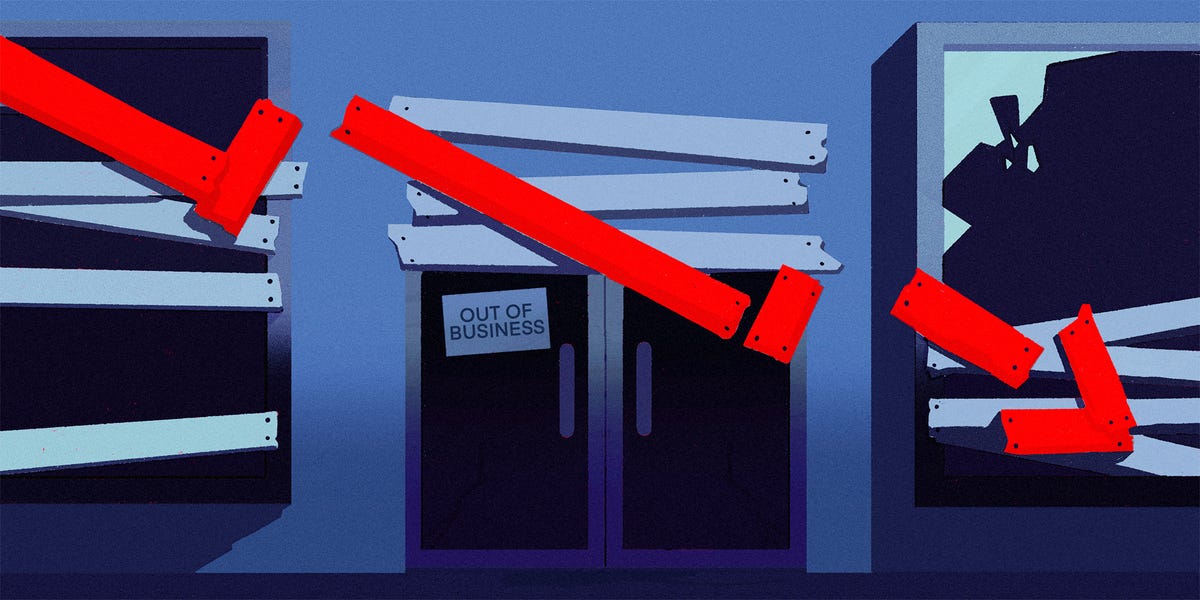deleted by creator
50% vacancy tax. Any property that is vacant for more than 50% of the year would require the owner to pay 50% of the assessed value, unless they can prove there is zero demand for the property at any price.
Would solve the problem very quickly. It’s a fair, equitable, market driven solution to the problem of real estate vacancies. But governments are much more concerned with maintaining the illusion of value, than effective land use.
There’s an old fast food restaurant near my neighborhood, boarded up, trash everyone, it’s a eyesore to the community.
Do you not have local ordinances requiring property owners to maintain them? Here’s language in a local cities code:
All buildings, both existing and new, and all parts thereof, shall be maintained in a safe and sanitary condition. All devices or safeguards which are required by this Building Code in a building when erected, altered or repaired, shall be maintained in good working order. The owner or the owner's designated agent shall be responsible for the maintenance of the owner's building.Not maintaining it would result in fines, which the property owner could pay, but the city could either keep increasing the fines to the point where its cheaper for the property owner to sell it.
Land value tax would fix this
When you build a country on debt, don’t be surprised when the banks end up holding all the cards. Those landlords took a risk and now it’s biting them in the ass. And honestly, looking at the conditions in those loan contracts, those are pretty big gambles. I understand putting your money to work, but then it never was their money to begin with.
Interest rates were too low for too long.
Culprit?
You say it like its a bad thing.
We dont need brick and mortar storefronts for most industries now, only a small handful still need people to go in person.
All of these stores and parking lots could become affordable housing instead, and the companies can move to warehouse+distribution models which work infinitely better, are better for business, better for consumers, and better for the environment.
1 truck delivering 20 deliveries uses a fraction of the gas as 20 individual people driving to the store to pick up their item.
Dozens of locations can amalgamate into a single warehouse, using a fraction of the footprint and centralizing all their storage, production, distribution, and management.
Required workers to get the product into a persons hand reduce substantially, which means overhead costs go down, which means better profits for the company and better ability to compete on the market.
And consumers have the luxury of items being delivered right to their doorstep.
The only industries that still actually need brick and mortar shops really are:
-
Restaurants, for obvious reasons
-
Clothing/shoe/etc stores, since it’s extremely difficult to gauge if clothing will be a good fit for you over the internet so you still want to be able to try clothing on in person before purchasing.
-
Any other “You really wanna try and verify it is a good fit before purchasing” style industries, like mattresses.
-
A small quantity of locations specifically targeting emergency needs, that typically are open 24/7. Convenience stores, late night pharmacies, etc. Anything in the realm of “Its 1 am and I need this right now” is worth having a brick and mortar shop for.
Pretty much everything else is just strictly better to just order it online.
While you aren’t wrong, sometimes it’s just really nice to browse through a store and see what they have. I can scroll through Amazon and Etsy all day, but going into a store just brings a different, valuable experience.
I can tell when something is a piece of shit when it’s in my hand.
If I want to return something i got online I have to get my fucking inkjet printer working (or go to a Staples) to print the return label from my email and then go to the post office and ship it back.
I feel like a big factor here is that it costs Amazon basically nothing to add another item for you to scroll through. Brick and mortar stores are naturally more restricted so you get a more curated inventory. One thing I like about shopping at Costco is that I never have to decide if Xyzxel or Bimdang is the more trustworthy brand.
Amazon Canada is overpricing a shit ton of their items compared to other stores as well.
deleted by creator
You’re not wrong.
Your whole argument is based on “goods are driven to a shop, and then people drive to that shop.” I live in a city, I just walk to the store and buy the thing. It’s much better for the environment than a truck driving to my home to deliver a a package of an item that weighs 100g
I just walk to the store and buy the thing.
The extremely vast majority of people do not have (insert their hobby here) available for purchase within walkable distance.
Groceries, dentist, pharmacist, optometrist, alcohol, convenience store, etc? Sure, those are pretty much always within walkable distance.
But everyone has other random stuff they need and that is almost never within distance. Everyone’s got something they like to consume/buy/coolect/use/whatever, and its extremely common for whatever that thing is to be simultaneously too low in demand to have coverage across their entire city, but high enough demand that theres some locations for it here and there.
Like, I dunno, 3d printing. Its common for most cities to have a couple places you can buy 3d printing stuff. But it sure isn’t so widespread that even 5% of the city’s population is within walking distance of a store to buy 3d printing supplies.
So there will be a very very sizeable chunk of the population that occasionally buys (thing) and the nearest store simply just isnt within walking distance to get.
Ew. No. Give me small curated stores. Give me people to talk to and items to physically look at. Give me a walkable area so there isn’t an absurd amount of energy usage past the initial delivery which bulk reduces. Give me people getting to pick their work and lifestyle rather than all working for monopolies.
I really don’t think warehouses and delivery is the answer for everything. I get that you like that from Covid but to some people that sounds awful, and I think you should hear that.
-





